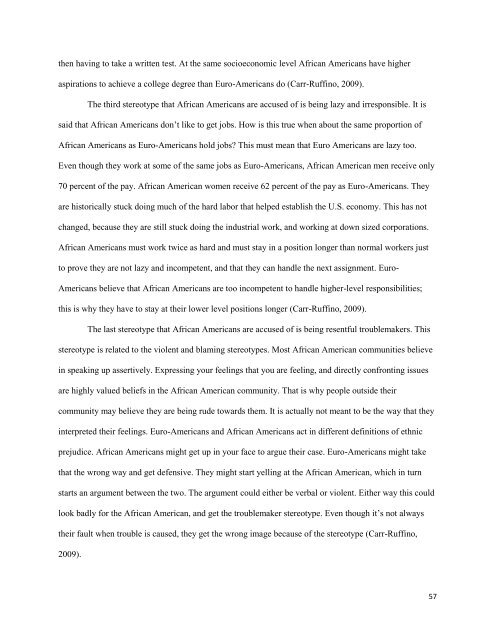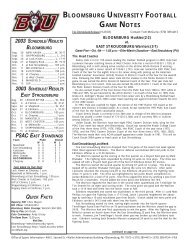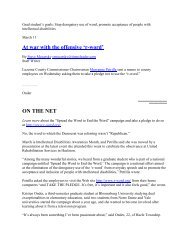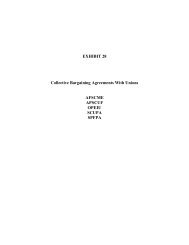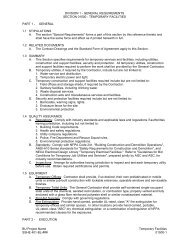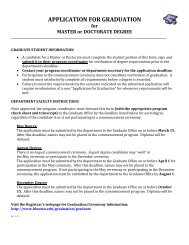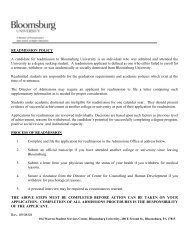Human Rights at Home and Abroad: Past, Present, and Future
Human Rights at Home and Abroad: Past, Present, and Future
Human Rights at Home and Abroad: Past, Present, and Future
Create successful ePaper yourself
Turn your PDF publications into a flip-book with our unique Google optimized e-Paper software.
then having to take a written test. At the same socioeconomic level African Americans have higher<br />
aspir<strong>at</strong>ions to achieve a college degree than Euro-Americans do (Carr-Ruffino, 2009).<br />
The third stereotype th<strong>at</strong> African Americans are accused of is being lazy <strong>and</strong> irresponsible. It is<br />
said th<strong>at</strong> African Americans don‘t like to get jobs. How is this true when about the same proportion of<br />
African Americans as Euro-Americans hold jobs? This must mean th<strong>at</strong> Euro Americans are lazy too.<br />
Even though they work <strong>at</strong> some of the same jobs as Euro-Americans, African American men receive only<br />
70 percent of the pay. African American women receive 62 percent of the pay as Euro-Americans. They<br />
are historically stuck doing much of the hard labor th<strong>at</strong> helped establish the U.S. economy. This has not<br />
changed, because they are still stuck doing the industrial work, <strong>and</strong> working <strong>at</strong> down sized corpor<strong>at</strong>ions.<br />
African Americans must work twice as hard <strong>and</strong> must stay in a position longer than normal workers just<br />
to prove they are not lazy <strong>and</strong> incompetent, <strong>and</strong> th<strong>at</strong> they can h<strong>and</strong>le the next assignment. Euro-<br />
Americans believe th<strong>at</strong> African Americans are too incompetent to h<strong>and</strong>le higher-level responsibilities;<br />
this is why they have to stay <strong>at</strong> their lower level positions longer (Carr-Ruffino, 2009).<br />
The last stereotype th<strong>at</strong> African Americans are accused of is being resentful troublemakers. This<br />
stereotype is rel<strong>at</strong>ed to the violent <strong>and</strong> blaming stereotypes. Most African American communities believe<br />
in speaking up assertively. Expressing your feelings th<strong>at</strong> you are feeling, <strong>and</strong> directly confronting issues<br />
are highly valued beliefs in the African American community. Th<strong>at</strong> is why people outside their<br />
community may believe they are being rude towards them. It is actually not meant to be the way th<strong>at</strong> they<br />
interpreted their feelings. Euro-Americans <strong>and</strong> African Americans act in different definitions of ethnic<br />
prejudice. African Americans might get up in your face to argue their case. Euro-Americans might take<br />
th<strong>at</strong> the wrong way <strong>and</strong> get defensive. They might start yelling <strong>at</strong> the African American, which in turn<br />
starts an argument between the two. The argument could either be verbal or violent. Either way this could<br />
look badly for the African American, <strong>and</strong> get the troublemaker stereotype. Even though it‘s not always<br />
their fault when trouble is caused, they get the wrong image because of the stereotype (Carr-Ruffino,<br />
2009).<br />
57


